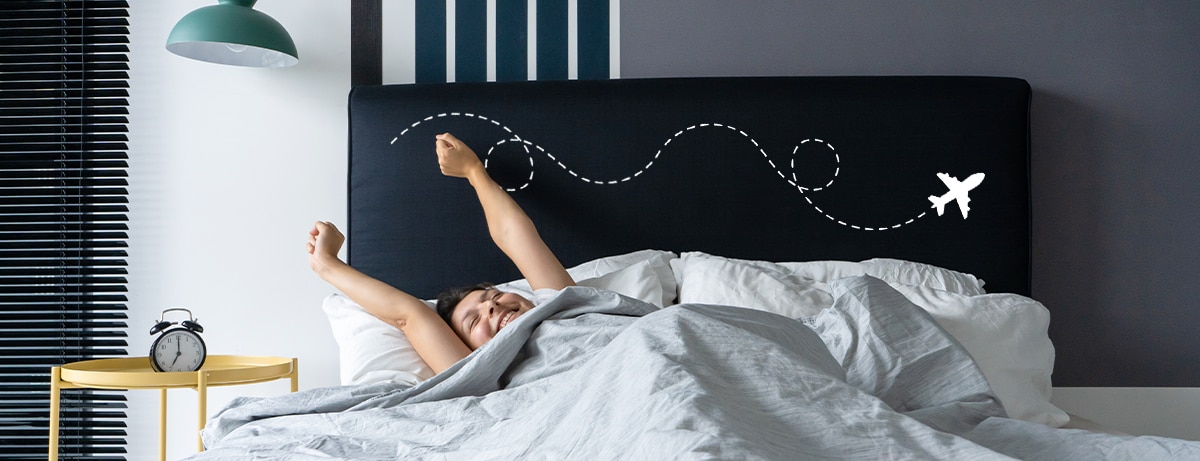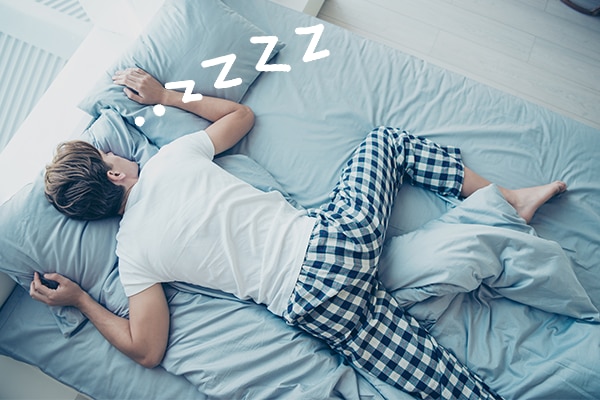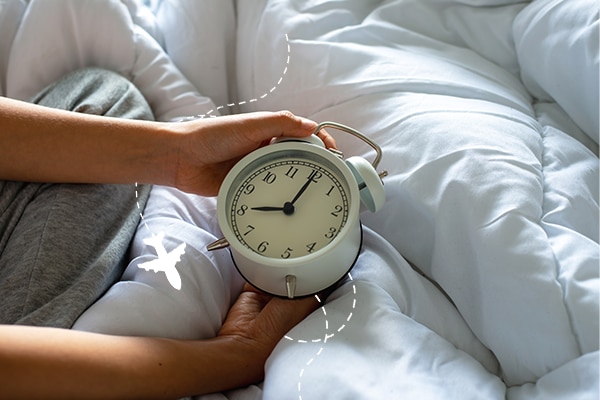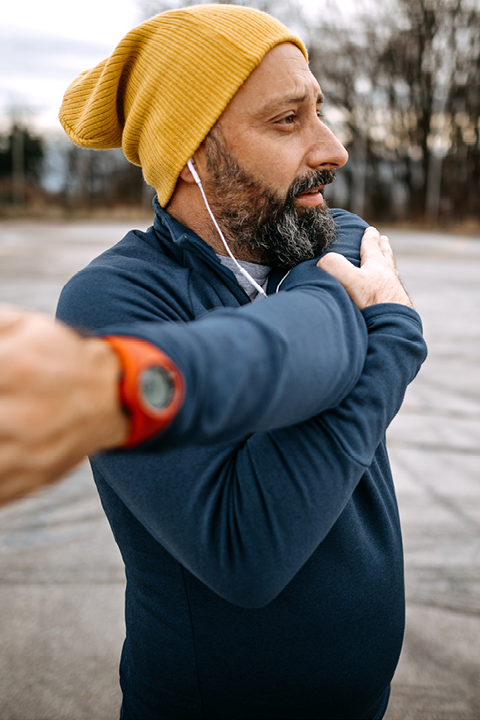B&C
|Carousel main title
Main title
How to get over jet lag

Travelling abroad is all fun and games... until you’re wide awake in the early hours or dozing off in the day.
Jet lag happens to most of us when we switch time zones. It’s inconvenient, but thankfully it’s temporary and there are some ways we can help minimise it.
Skip to: What is jet lag? | Symptoms | Getting over jet lag | The final say
What’s jet lag?
Our bodies have their own internal clocks called circadian rhythms. They’re what help us feel tired at night and awake during the day.¹
Our circadian clock is “programmed” to our own time zone. So, when we travel, it can take some time to adjust.
Jet lag is the tiredness and other symptoms you might experience during this. But don’t worry, it shouldn’t last more than a few days.
It only happens when you travel between time zones. So, you won’t get jet lag on a journey travelling north or south that doesn’t change time zones, for example.
What does it feel like?
What does it feel like?
Jet lag symptoms can include:
- Tiredness
- Difficulty sleeping at night and waking up in the morning
- Difficulty staying awake during the day
- Poor concentration
You might also feel sick, have stomach problems, or feel generally “off” or anxious.² ³


What increases jet lag?
Some people get jetlagged more than others, and it’s not fully known why. But there are certain factors that can make it worse: ³
- Your journey: The further the distance and the greater the difference in time zones, the worse your jet lag may be. The direction can also affect you: most people find that travelling east is harder than west.³
- Sleep: Poor sleep in the days leading up to your journey can make you more likely to experience jet lag.³
- Stress: Stress can disturb your sleep, which can make jet lag more difficult to handle.
- Dehydration: It’s thought that dehydration may contribute to some symptoms of jet lag.¹
- Alcohol and caffeine: These can affect other factors (like dehydration and sleep), making the effects of jet lag worse or making it more difficult to handle them. ³
How can you help get over it?
There isn’t a specific treatment for jet lag. You won’t usually need any medicine or to see your doctor.
Most people will feel better and be able to sleep normally after a few days, but there are a few extra ways you can help minimise the shock to your body clock:
Before you go
- Get plenty of rest. Don’t set out sleep deprived in the hopes it’ll make you fall asleep on the plane!
- Instead, gradually ease yourself in by going to bed and waking up an hour earlier or later (depending on your destination’s time zone) each day.


On your flight
On your flight
- Follow the times of your destination. For example, sleep if it’s night where you’re going, and eat your meals at your destination’s times if you can.
- Drink lots of water – buy a large bottle at duty-free to make sure you have enough!
- Keep your naps short. Power naps are okay, but try to keep them to 30 minutes or less to help your brain adjust. And save them for mornings: only nap at least eight hours before you plan to go to bed.³


Once you get there
Once you get there
- Start trying to adjust to your new time zone immediately. That means sleeping at night! Even if you don’t feel tired, try to rest and do all the same things you’d do (like keeping lights low and screen time limited) at your usual bedtime.
- Try to get outside during daylight hours. Light - and especially sunlight - has a strong influence on your circadian rhythm, so strategically timing your light exposure can help you adjust to your new routine.³
- Avoid drinking too much caffeine and alcohol, as they can make jet lag worse.²


The final say
Jet lag can dampen the first day or two of a holiday. But it won’t last!
Fill up your water bottle and get some early nights in...
The advice in this article is for information only and should not replace medical care. Please check with your GP or healthcare professional before trying any supplements, treatments or remedies. Food supplements must not be used as a substitute for a varied and balanced diet and a healthy lifestyle.









